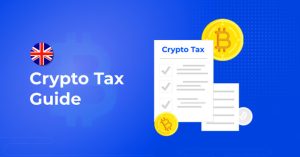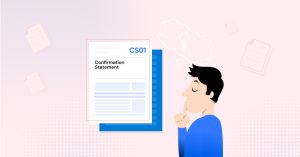Understanding National Insurance Contributions (NIC) for the Self-Employed
National Insurance Contributions (NIC) can be confusing for self-employed individuals, whether you're a freelancer, small business owner, or sole trader. However, getting a clear understanding of how NIC works is essential for managing your finances and securing access to state benefits like the State Pension.
In this guide, we’ll explain everything you need about National Insurance for the self-employed. Learn how much you need to pay, how it impacts your State Pension, and why it’s important for your financial planning. Whether you’re new to self-employment or looking for a refresher, this guide will help you navigate NIC with ease.
What Are National Insurance Contributions?
National Insurance Contributions (NICs) are payments made to the UK government that help you qualify for important benefits like the State Pension, maternity allowance, and jobseeker’s allowance. These contributions act as a safety net, supporting you during major life events such as retirement, unemployment, or illness.
If you're self-employed, your National Insurance payments are based on your profits after deducting allowable expenses. Understanding how National Insurance works for the self-employed is crucial for managing your finances and ensuring you're on track to receive key benefits.
For more about the national insurance contribution deadline extension into 2025 click here
How Much National Insurance Do the Self-Employed Pay?
What is Class 2 National Insurance?
Since April 2024 you don`t have to pay Class 2 NIC for self-employed. For more information about Autumn Budget 2023 click here.
What is Class 4 National Insurance?
If you make more than £12,570 a year, you’ll need to pay extra National Insurance (Class 4) as well as the basic amount (Class 2). Here’s how it works for the 2024 to 2025 tax year:
- You’ll pay 6% on earnings between £12,570 and £50,270.
- You’ll pay 2% on anything you earn over £50,270.
The more you earn, the more you contribute—simple as that.
What If You Earn Less Than £6,725?
If you earn less than £6,725, you don’t have to pay National Insurance. But, it might be a good idea to make voluntary payments to keep your record up to date. This helps you qualify for things like the State Pension later on and avoids gaps that could affect your benefits in the future.
Filling Gaps in Your National Insurance Record
If you’ve missed National Insurance contributions in previous years, you can fill the gaps by making voluntary NIC payments. This can be especially important if you’re nearing retirement and need enough contributions to qualify for the full State Pension.
Class 2 contributions are an affordable option for many. For the 2024 to 2025 tax year, they’ll cost just £3.45 per week to cover any gaps. However, before making any payments, it’s a good idea to check with the Future Pension Centre to make sure they’ll actually boost your State Pension.
Is It Worth Filling Gaps in National Insurance?
Filling gaps can be a great idea, especially if it helps you secure eligibility for the full State Pension, which is currently £203.85 per week (based on the latest figures). That said, for some self-employed folks, the benefits might not always justify the costs. It’s always worth taking a look at your personal financial situation or chatting with a professional to make the best choice for you.
What Is the National Insurance Cut for the Self-Employed?
If you're self-employed, recent changes to National Insurance Contributions (NIC) could impact how much you pay. For tax years before 2023, higher rates applied to both Class 2 and Class 4 NICs. However, new updates have introduced some relief to make payments fairer and more manageable.
Key highlights include:
- A lower threshold for Class 4 NICs to help individuals earning just above £12,570.
- Reduced rates for higher earnings, ensuring contributions scale gradually with profits.
These updates aim to align NIC payments with the current economic landscape, providing more fairness and financial flexibility for the self-employed. Stay informed to make the most of these changes and ensure you're managing your tax contributions effectively.
Why Missing Your Tax Return Deadline Could Cost You More Than Just a Fine
Missing the deadline for your self-assessment tax return can cause some serious headaches, especially if you're self-employed. For starters, HMRC hits you with an immediate £100 penalty for late filing, and that fine only gets bigger the longer you delay—additional charges kick in after three, six, and twelve months. On top of that, interest on any unpaid tax starts to pile up, making the total amount you owe even higher.
But it’s not just about the fines. Filing late can mess with your Class 2 and Class 4 National Insurance contributions, which are key for things like state benefits and your State Pension. Falling behind on these could impact what you’re entitled to down the line, potentially affecting your financial future.
So, missing the deadline isn’t just about paying a fine now—it could also have long-term consequences for your financial stability and security. Better to get it done on time and save yourself the hassle!
Need Help Managing Your National Insurance?
Navigating National Insurance Contributions can feel overwhelming, but taking the time to understand how they work can save you money and secure your access to vital benefits. Here’s a quick recap of the essentials:
- If you’re earning £6,725 or more, you should be paying Class 2 contributions.
- If your profits exceed £12,570, you’ll also need to pay Class 4 contributions.
- Don’t forget to consider filling gaps in your record for long-term benefits.
Still have questions? Our team of experts is here to help. Whether you need guidance on calculating your contributions, filling gaps, or understanding voluntary payments, we’ve got you covered.
Contact Us Today and take the next step in securing your financial future.













